Search
Search Results
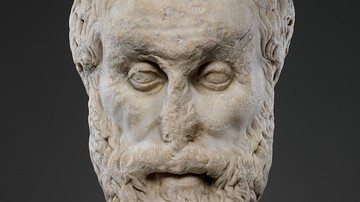
Definition
Pre-Socratic Philosophers
The Pre-Socratic Philosophers are defined as the Greek thinkers who developed independent and original schools of thought from the time of Thales of Miletus (l. c. 585 BCE) to that of Socrates of Athens (470/469-399 BCE). They are known as...

Interview
Interview: Pre-Raphaelites: Modern Renaissance
Pre-Raphaelites: Modern Renaissance marks the first multidisciplinary exhibition in Italy to examine the profound impact of Italian Renaissance art on the Pre-Raphaelite movement, which flourished in Victorian and Edwardian Britain (c. 1840-1920...
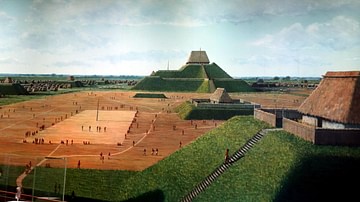
Definition
Pre-Colonial North America
Pre-Colonial North America (also known as Pre-Columbian, Prehistoric, and Precontact) is the period between the migration of the Paleo-Indians to the region between 40,000-14,000 years ago and contact between indigenous tribes and European...
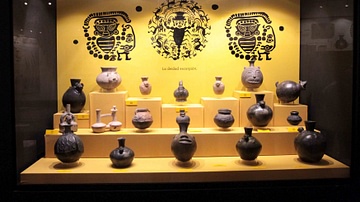
Article
Pre-Inca Civilisations at the Tucume Museum
On 1 November 2015 CE, at the annual dinner hosted by the British Guild of Travel Writers at the Savoy Hotel in London, it was announced that the Tucume Museum in northern Peru had won the prestigious award for the Best Wider World Tourism...

Article
The Three Estates of Pre-Revolutionary France
Society in the Kingdom of France in the period of the Ancien Regime was broken up into three separate estates, or social classes: the clergy, the nobility, and the commoners. These classes and their accompanying power dynamics, originating...
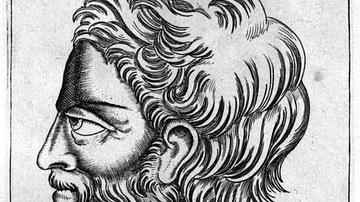
Definition
Archelaus (Philosopher)
Archelaus of Athens (l. c. 5th century BCE) was a Pre-Socratic philosopher in ancient Greece who claimed the first cause of existence was the opposition of cold and heat which caused the separation of the universal essence to produce a plurality...

Definition
Greek Philosophy
Ancient Greek philosophy is a system of thought, first developed in the 6th century BCE, which was informed by a focus on the First Cause of observable phenomena. Prior to the development of this system by Thales of Miletus (l. c. 585 BCE...

Definition
Heraclitus of Ephesus
Heraclitus of Ephesus (l. c. 500 BCE) was one of the early Pre-Socratic philosophers who, like the others, sought to identify the First Cause for the creation of the world. He rejected earlier theories such as air and water and claimed that...

Definition
Anaxagoras
Anaxagoras (l. c. 500-c. 428 BCE) was a Pre-Socratic Greek philosopher who claimed the First Cause of existence was Mind (nous) and all things were constituted of indestructible “seeds” (or “stuff”), originally a single mass, separated and...
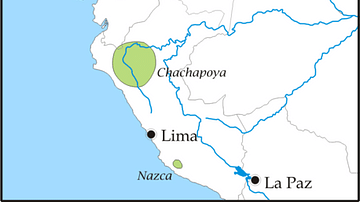
Image
Pre-Columbian Tribes of Northern South America
A map highlighting the areas of settlement of various pre-Columbian civilizations in the northern areas of South America such as the Muisca, Tairona, and Quimbaya